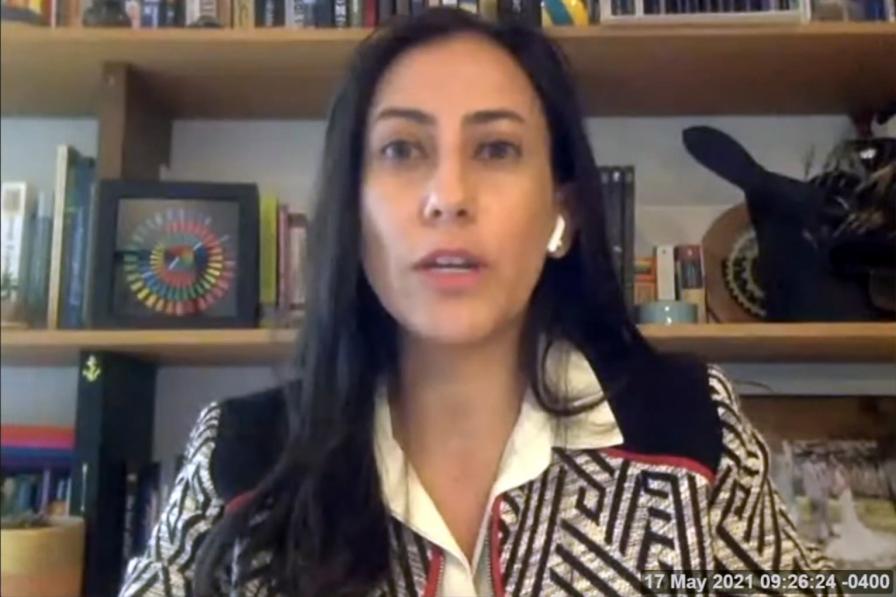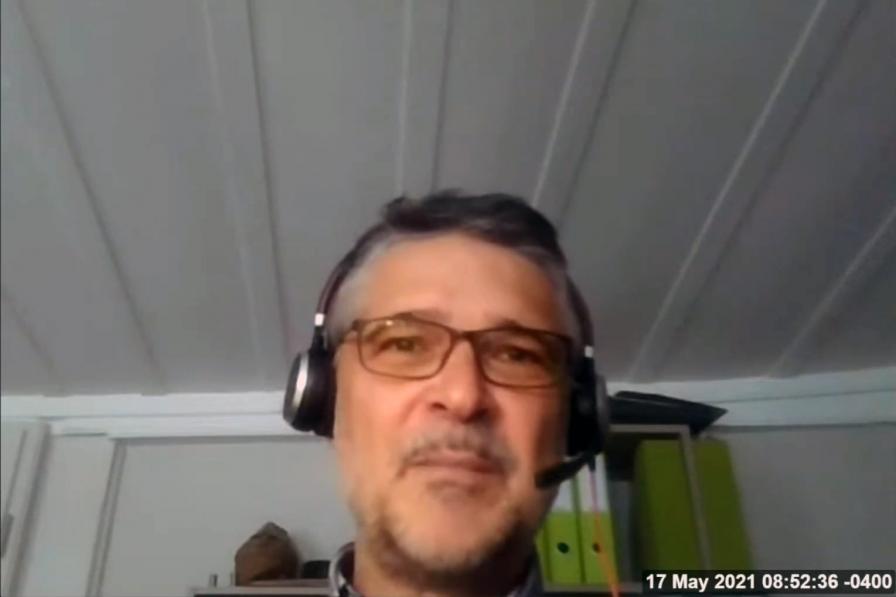On Monday, the third session of the Subsidiary Body on Implementation (SBI-3) of the Convention on Biological Diversity (CBD) convened its second plenary meeting, to prepare for the 15th session of the Conference of the Parties (COP15) and the adoption of the post-2020 global biodiversity framework (GBF). The meeting focused on issues related to means of implementation.
During the three-hour session, delegates addressed:
- resource mobilization, including draft recommendations and reports of the panel of experts;
- the financial mechanism, including matters related to the eighth replenishment of the Global Environment Facility (GEF-8); and
- matters related to capacity development, technical and scientific cooperation, and technology transfer.
Resource mobilization and the financial mechanism
Many parties stressed the need for ambitious and timely financial means of implementation as part of the GBF, including specific quantitative commitments for developed countries. They supported the approach suggested by the panel of experts on resource mobilization, including reducing or redirecting resources causing harm to biodiversity, generating additional resources from all sources, and enhancing the effectiveness and efficiency of resource use.
Delegates emphasized the need for resource mobilization from all sources, while underscoring the need to redirect, repurpose, or reform harmful subsidies and incentives. Some also called for synergies with sustainable development- and climate-related finance, including through nature-based solutions. They underlined cooperation between the GEF and the Green Climate Fund. Developing countries drew attention to CBD Article 20 (Financial Resources) and called for application of the principle of common but differentiated responsibilities.
Parties stressed the need for national finance plans, highlighting lessons learned from the Biodiversity Finance Initiative (BIOFIN) and calling for flexibility to reflect differing circumstances. Some also noted that the proposed new resource mobilization strategy should be responsive to national specificities and recognize the characteristics of specific sectors.
Many recognized the GEF’s role as the financial mechanism of the Convention, focusing on its operational effectiveness, accessibility to the most vulnerable, potential to contribute to GBF implementation, and need for dedicated funding for the Convention’s Protocols.
Major groups and observers highlighted, inter alia:
- gender considerations as a component of resource mobilization;
- the importance of a whole-of-government approach and timebound action to remove subsidies and incentives harmful to biodiversity; and
- the need to further recognize austerity and national debt as limiting factors for effective implementation of the Convention.
Highlighting the corporate capture of policy making, they called for strong regulatory action as key to ensure the private sector transitions in a more sustainable pathway.
A contact group was established to work on the draft recommendations, co-chaired by Ines Verleye (Belgium) and Teona Karchava (Georgia). It will begin its deliberations on Wednesday, 19 May.
Capacity development, technical and scientific cooperation, and technology transfer
Delegates initiated discussions on matters related to capacity building, technical and scientific cooperation, and knowledge management and communication. Small island developing states (SIDS) from the Pacific and the Caribbean highlighted the importance of continuing the programme of work on island biodiversity, adopted at COP8. They further underscored the Small Island Developing States Accelerated Modalities of Action (SAMOA Pathway), stressing SIDS’ unique characteristics.
Other regional groups highlighted the importance of independent assessments of the long-term strategic framework for capacity development, and suggested improvements regarding coordination mechanisms, reporting, and review. They further proposed a standalone document on capacity development for the Cartagena Protocol. They also discussed institutional mechanisms, including the establishment of regional and sub-regional research centers, and suggested the development of a global knowledge center for biodiversity, and modalities for environmental data exchange.
Discussions on this agenda item will continue on Tuesday.
To receive continuing coverage of this event delivered to your inbox, subscribe to the ENB Update newsletter.






